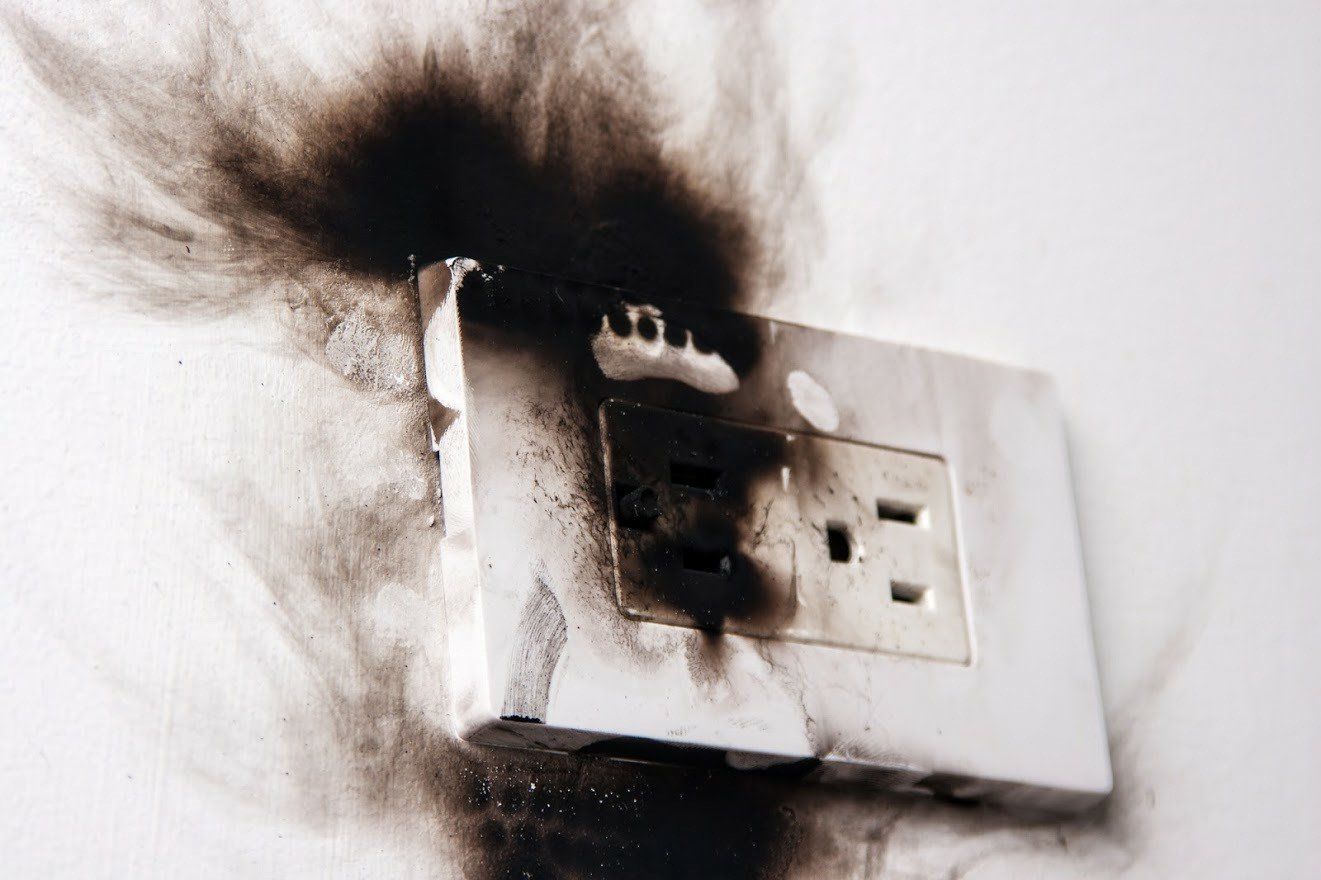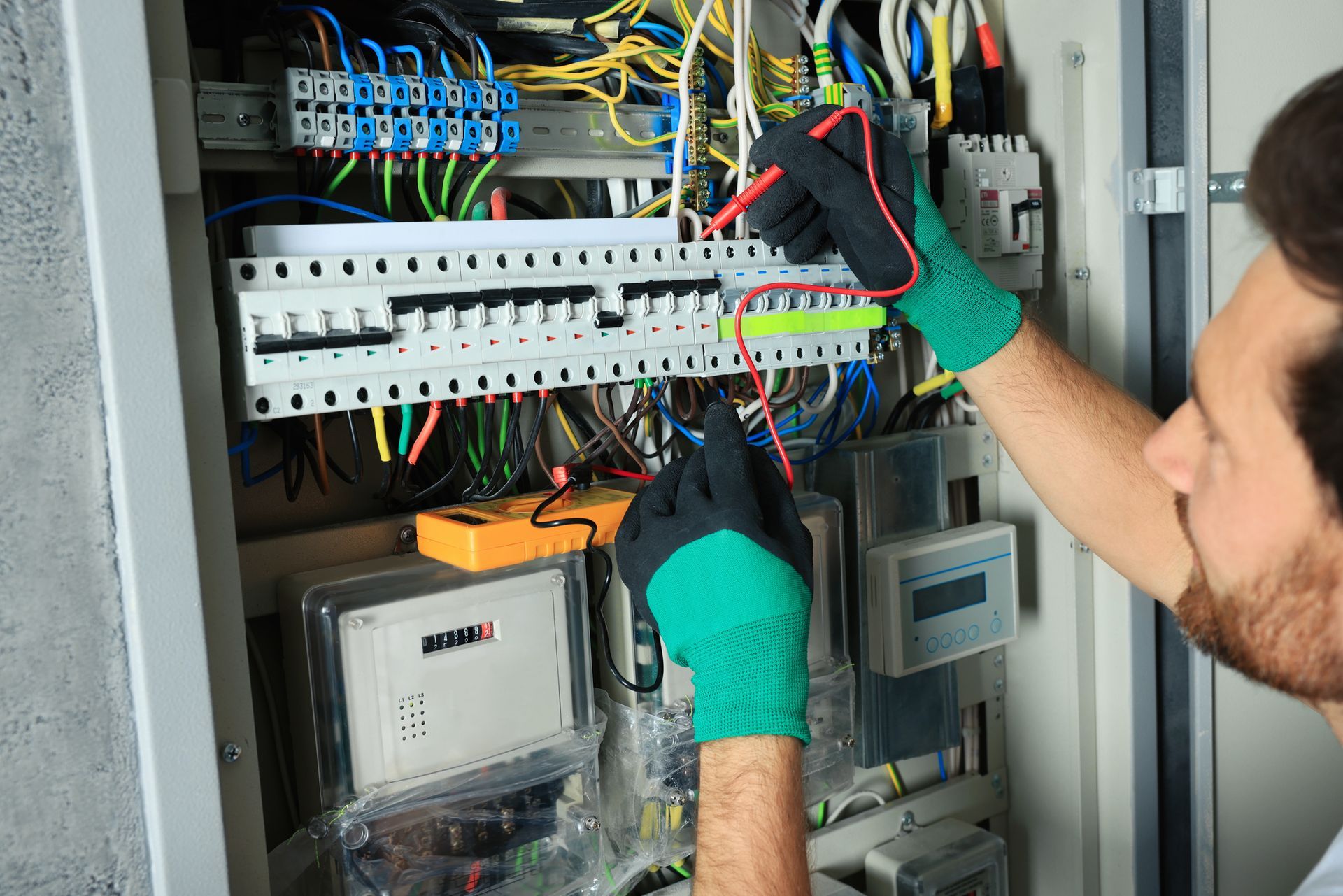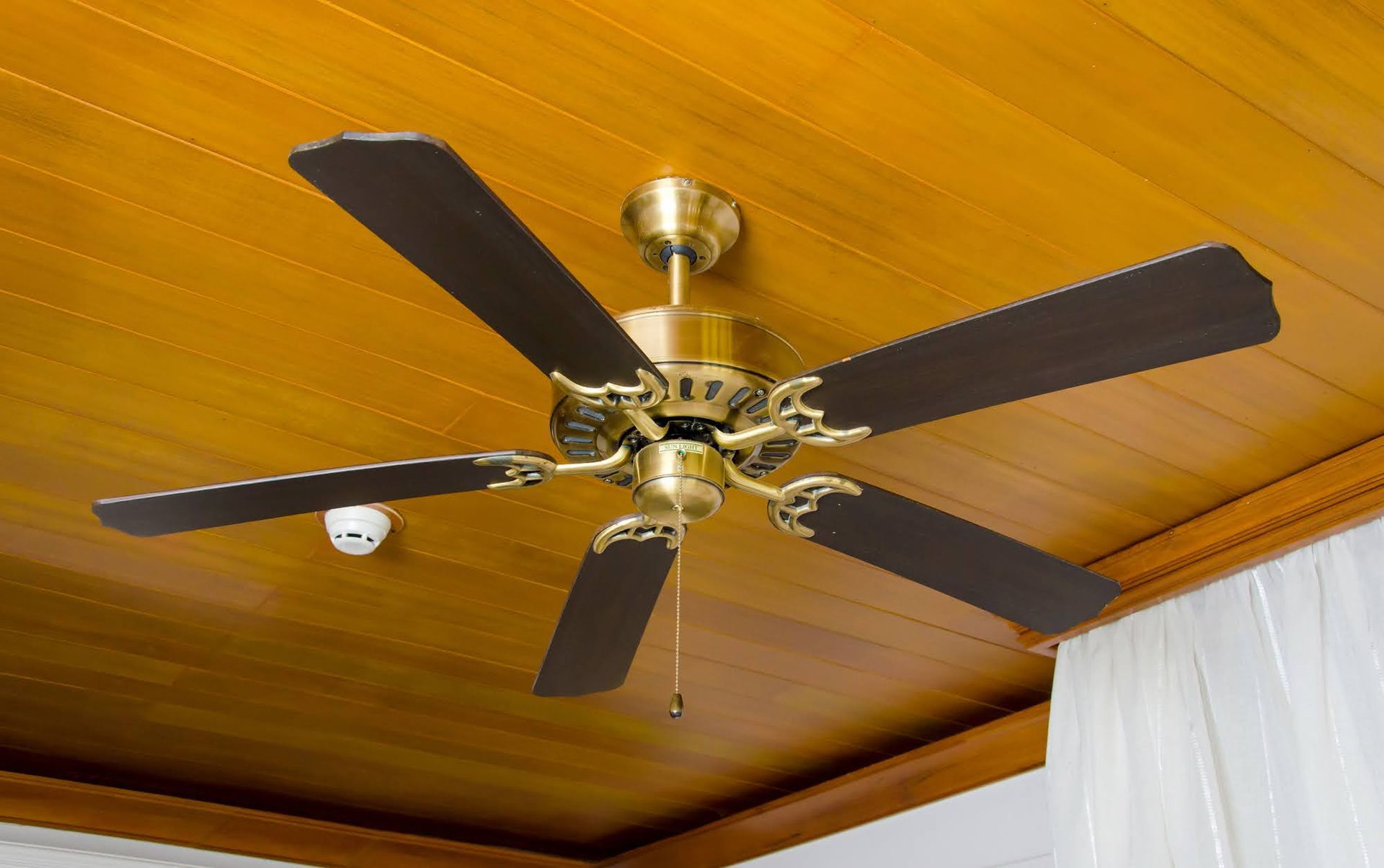Electrical Trouble Signs | Beckstoffer-Welsh Inc.

1. Power Fluctuations
If your appliances seem to run unevenly or your household lights flicker, you may have visual evidence of an electrical system issue. While individual light bulbs may flicker harmlessly as they wear out or come loose from their fixtures, multiple lights flickering simultaneously points to a deeper fault in the system itself.
You might trace the failure to a specific point by evaluating how much of the house seems affected by it. If several components in the same room suffer from the problem, suspect the breaker that governs those components. If the problem affects the whole house, the breaker box itself or your outdoor utility drop may need repair.
2. Outlet Problems
The majority of residential electrical fires start in or at the outlets that feed power to appliances. In some cases, a defect in the appliances themselves causes the fire; in others, the electrical outlet has developed defects of its own. Never use an electrical outlet that shows any sign of abnormal operation.
Watch out for sparks coming from an outlet. A tiny bit of sparking when you first plug in an appliance represents a normal transfer of electric current. However, many years of wear and tear, imperfect previous repairs, or water infiltration can cause more dramatic sparking, presenting you with a fire hazard.
3. Burning or Scorching
Even if you don't see sparks coming from your outlets, you may see other effects of overloaded circuitry and outlet failure. For instance, you may notice brown or black discoloration around an outlet. This discoloration comes from scorching, a sign that your wiring's insulation may have failed and started to cause damage.
Your nose may detect an outlet problem in the absence of any visual cues. If you smell a strong odor of burning plastic, an overload in the outlet may have melted the insulation, leaving the bare wiring exposed. Without this critical protection in place, hot, sparking wires can easily cause a house fire. Get this problem investigated and fixed.
The wrong kind of wiring material can also raise your risk for electrical fires. Although modern homes always use copper wiring, older homes may still have aluminum wiring. This form of wiring, while popular for its cheapness, expands and contracts so readily that it can loosen at its connection points. Replace it with copper wiring.
4. Frayed Insulation
Electrical insulation can fail without melting from an overload. The thin plastic that envelopes metal wires may resist moisture or (to some degree) heat, but it can't hold up against the teeth of household pests such as rats, mice, and squirrels. These creatures often chew their way into attics, and therefore into attic wiring.
If you see insulation that appears frayed, chewed through, or crushed due to pressure (perhaps from occupants walking on it), schedule an inspection to get that wiring looked at and replaced. A thorough, professional electrical inspection can also reveal additional damage to wiring that you might never have noticed yourself.
When you notice these or other electrical warning signs, leave the solutions to Beckstoffer-Welsh Inc. Our experienced residential electrical contractors can inspect your household electrical system and make any necessary corrections to restore your family's safety. Contact us today to describe your issue and request help.















